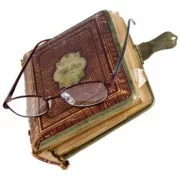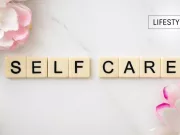
Top 10 Books To Read To Improve Writing: A Book a Day Keeps Bad Writing Away
As a writer, I have always believed that reading is the key to improving my craft. Over the years, I have read hundreds of books on writing, from classics like “On Writing” by Stephen King to more contemporary works like “Big Magic” by Elizabeth Gilbert. But no matter how many books I read, I never stopped searching for more. That’s when I came up with the idea of reading a book a day to keep bad writing away. So, let’s dive into this list of the top 10 books to read to Improve Writing, and see what makes them so essential for writers.
I started my journey by selecting books that were recommended by other writers or had high ratings on Goodreads. I also looked for books that covered a range of topics, from the craft of writing to the business of publishing. Some of the books I read were classics that had been around for decades, while others were more recent releases.
Top 10 Books to Read To Improve Writing
As an experienced writer, I’ve compiled a list of the top 10 books to read to improve my writing that have helped me improve my writing skills over the years.
1) “Bird by Bird” by Anne Lamott
One of the first books I read was “Bird by Bird” by Anne Lamott. In this book, Lamott offers practical advice on writing and shares her own experiences as a writer. She encourages writers to embrace the messiness of the creative process and to write one word at a time. One of my favorite quotes from the book is, “Perfectionism is the voice of the oppressor, the enemy of the people. It will keep you cramped and insane your whole life.”
Checkout our list of How to Write a Book Review That Captivates Your Audience
2) “On Writing Well” by William Zinsser.
Another book that had a big impact on me was “On Writing Well” by William Zinsser. This classic guide to writing nonfiction covers everything from style to tone to structure. Zinsser emphasizes the importance of simplicity and clarity in writing and encourages writers to focus on the reader’s needs. He also reminds writers that writing is a craft that can be improved through practice and hard work.
As I continued on my journey of reading a book a day, I discovered many other great books on writing. Some of them were practical guides that offered step-by-step advice on everything from outlining to editing. Others were more inspirational, offering insights into the creative process and the life of a writer.
Checkout our list of Best Fiction Books of All Time with Timeless Appeal
3) “The War of Art” by Steven Pressfield
One book that stood out to me was “The War of Art” by Steven Pressfield. In this book, Pressfield explores the concept of resistance and how it can prevent us from reaching our creative potential. He encourages writers to overcome their fears and self-doubt and to do the work that they were meant to do. This book had a profound impact on me and helped me to push through some of the challenges I faced as a writer.
Checkout our list of Most Read Books of All Time: A Literary Journey
4) “Big Magic” by Elizabeth Gilbert.
Another book that I found inspiring was “Big Magic” by Elizabeth Gilbert. In this book, Gilbert encourages writers to embrace their creativity and pursue their passions without fear. She shares stories from her own life and offers practical advice on how to tap into your creative energy. One of my favorite quotes from the book is, “You do not need anybody’s permission to live a creative life.”
Checkout our list of Best Self-Help Books for Personal Growth
5) “The Artist’s Way” by Julia Cameron
If you’re looking for a comprehensive guide to unlocking your creativity, “The Artist’s Way” is the book for you. Julia Cameron’s book is a 12-week program designed to help artists of all kinds develop their creativity.
What makes this book so valuable is its practical approach. Cameron provides readers with concrete exercises and tools to help them tap into their creativity and overcome creative blocks.
Checkout our list of Self-Discipline Books to Transform Your Life
6) “Steal Like an Artist” by Austin Kleon
Austin Kleon’s “Steal Like an Artist” is a fun and inspiring guide to creativity. In this book, Kleon encourages readers to embrace their influences and use them to create something new and unique.
What makes this book so valuable is Kleon’s approachability. His writing is funny and engaging, making it easy to see how we can all use our influences to create something new and exciting.
Checkout our list of Top 10 Must-Read Books for Book Lovers
7) “The Writing Life” by Annie Dillard
Annie Dillard’s “The Writing Life” is a beautiful meditation on the art of writing. In this book, Dillard shares her insights on the writing process, from the joys of creation to the struggles of self-doubt.
What makes this book so valuable is Dillard’s poetic writing style. Her prose is elegant and insightful, making it easy to see why she is considered one of the greatest living writers.
Checkout our list of Don’t Use ChatGPT To Be More Productive. Read These Best Books Instead
8) “Zen in the Art of Writing” by Ray Bradbury
Ray Bradbury’s “Zen in the Art of Writing” is a collection of essays on the creative process. In this book, Bradbury shares his insights on how to develop your creativity and overcome creative blocks.
What makes this book so valuable is Bradbury’s passion for writing. His writing is infused with energy and enthusiasm, making it easy to see how he has been able to write so prolifically over the years.
9) “The Power of Myth” by Joseph Campbell and Bill Moyers
Joseph Campbell’s “The Power of Myth” is a book about the role of myth in our lives. In this book, Campbell shares his insights on the importance of myth and how it can help us understand ourselves and the world around us.
What makes this book so valuable is its relevance to writers. As storytellers, writers are inherently interested in the power of myth, and Campbell’s book offers a unique perspective on this topic.
Checkout our list of Top 10+ Best Psychological Thriller Books to Blow Your Mind
10) “On Writing” by Stephen King
Stephen King is one of the most successful authors of all time, and “On Writing” is his memoir-cum-writing guide. In this book, King shares his insights on the craft of writing, from the importance of reading to the nuts and bolts of creating a story.
What makes this book so valuable is King’s honesty and humor. He doesn’t shy away from discussing his failures and struggles as a writer, making it relatable to aspiring writers.
Checkout our list of Best Books From Novel80: An Adventure into the 80s
My Experience with Top Books to Read To Improve Writing
Of course, not every book I read was a hit. Some of them were dry and boring, and others were just not relevant to my interests as a writer. But even those books taught me something, whether it was a new technique for outlining or a better understanding of the publishing industry.
Overall, my experience of reading a book a day to keep bad writing away was a positive one. I learned a lot about the craft of writing, discovered new authors and styles, and was inspired to push myself to become a better writer. Of course, not everyone has the time or energy to read a book a day, but even reading a few books a month can make a big difference.
If you’re looking for some essential reading for writers, I would recommend starting with the classics like “Bird by Bird” and “On Writing Well.” From there, explore some of the more contemporary works like “Big Magic” and “The War of Art.” And don’t be afraid to take chances on books that are outside of your comfort zone. You never know what you might learn or how it might inspire you.
In addition to reading books, I also found it helpful to take notes as I read. I highlighted passages that resonated with me and wrote down ideas and insights that I wanted to remember. This helped me to retain what I had learned and to refer back to it later when I needed inspiration or guidance.
Another tip to read books that I found helpful was to read with a purpose. Before I started a new book, I would set a specific goal or question that I wanted to explore. For example, if I was struggling with character development, I would look for books that offered advice on creating complex and believable characters.
Finally, I would recommend sharing what you learn with others. Whether it’s through a blog, a writing group, or just a conversation with a friend, sharing your insights can help to solidify your understanding and to inspire others.
Checkout our list of Fantastic Books You Should Have Read Sooner
Final Words
Reading a book a day to keep bad writing away was a valuable experience that taught me a lot about the craft of writing. While it may not be practical for everyone to read that much, even reading a few books a month can make a big difference in your writing journey. So, pick up a book, take some notes, read with a purpose, and share what you learn. Your writing will thank you for it.
If you don’t see what you’re looking for here, reach out to us at [email protected].





















